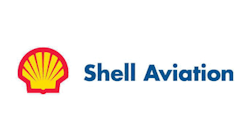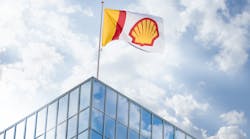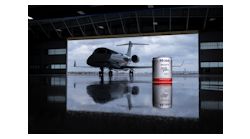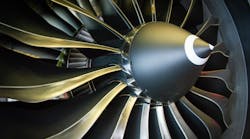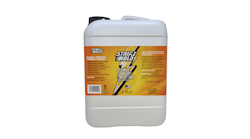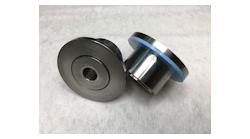A historic Catalina seaplane landed on Sunday having replicated the 1913 Circuit of Britain, which was the first major competition for seaplanes. The common aviation engine oil in 1913 was a simple castor oil. 100 years on, the Catalina used the modern AeroShell100, part of Shell's extensive range of high-quality oils capable of protecting technically-advanced engines operating at extremes of temperatures and speeds.
Julie Laviolette, General Manager for Shell Aviation Americas, said:
"Although this event originally took place in the UK, it is a good opportunity to stop and remember how far aviation has come in the last 100 years. Milestones like this allow us to remember our business's heritage, while we continue to innovate for the future. In the last 100 years Shell has been involved in many of the innovations that enable flight as we now know it. At our dedicated technology centre in Houston we continue to develop advanced products that support our customers in the US every day."
Aviation technology has come a long way since its first tentative steps in the early 20th century. Then, engines using castor oil could only operate for about 10 hours before needing a service. Today Shell's performance engine oils help modern engines fly at speeds unimaginable in 1913 for thousands of hours, before the need of an overhaul.
Over the last 100 years, flight has become an irreplaceable part of society, bringing people together and creating opportunities for trade and tourism.
Shell Aviation has been involved in the development of modern aviation every step of the way and this will continue into the future. Examples of Shell's innovation include developing the first high-octane aviation fuel (avgas) in the 1930s, which allowed more powerful and faster flight. In the following decades, Shell supported the development of the jet engine, formulated a synthetic engine oil specifically for the Concorde's supersonic engines and fuelled its first flight. More recently Shell has developed the high-performance AeroShell Ascender engine oil, designed specifically for the latest jet engines. Shell Aviation has also developed a cleaner burning jet fuel made from natural gas.
Shell Aviation is proud of its long heritage and will continue to invest in new products for modern aircraft and fuel efficiency, today and into the future.
About the 1913 Circuit of Britain Race
The 1913 Circuit of Britain Race was the first major competition for seaplanes. It was part of a series of awards given by Lord Northcliffe to encourage the development of global aviation. As the original aircraft that took part is no longer airworthy, the memorial flight was carried out in a historic Catalina seaplane- the oldest flying seaplane in the UK. The flight took five days and followed the race's original route as closely as possible, giving a number of aerial demonstrations along the way.
Between 1905 and 1925 Lord Northcliffe awarded over 15 prizes for various aviation challenges. As well as the Circuit of Britain Race, Shell also supplied fuels and lubricants for other awards, such as the first cross-channel flight in 1909 by Louis Bleriot, and Alcock and Brown's crossing of the Atlantic in 1919.
ABOUT SHELL AVIATION
Shell is active across the full aviation value chain. We produce aviation fuels and lubricants (across a range of grades); market, sell and distribute them - as well as offer further related services to customers.
Shell Aviation is a leading global supplier of aviation fuels and lubricants with a heritage of over 100 years. We supply fuel at 800 airports in approximately 40 countries, including John F. Kennedy in New York, London Heathrow, Changi International in Singapore and Hong Kong International. We refuel a plane every 12 seconds. Our customers are airports and airlines, big and small, plus private customers such as corporate jet operators and flying clubs.
We have one of the world's most extensive fuelling networks and have a strong supply chain. We have a portfolio of world-class brands and products and continue to invest in technical innovation. We have strong working relationships with OEMs, put the customer at the heart of what we do and respond to industry opportunities and challenges.
